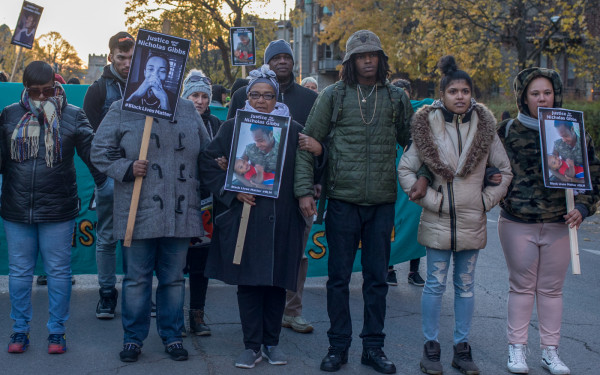Vigil for Victims of Police Brutality Calls for More Accountability
Police Need to be Investigated, Says Anti-Police Brutality Activist
Truth, justice and accountability. Bridget Tolley found herself repeating these words several times during Monday night’s 9th annual vigil for victims of police brutality.
Tolley spoke behind a banner that read “justice for the victims of police killing” which showed photos of victims of police brutality. As she turned to face the 13 police officers in front of the Fraternité des policiers et policières de Montréal, Tolley voiced her distrust in law enforcement.
In October 2001, Tolley’s mother, Gladys Tolley, was struck and killed by a Sûreté du Québec police cruiser. Tolley recited the hardships she endured in the 17 years following her mother’s death, and the investigation that followed.
According to Tolley, there were three police forces involved in her mother’s death, including the SQ, Service de police de la Ville de Québec and the Kitigàn Zìbì Police. Almost two decades later, Tolley said it’s hard to trust any of them.
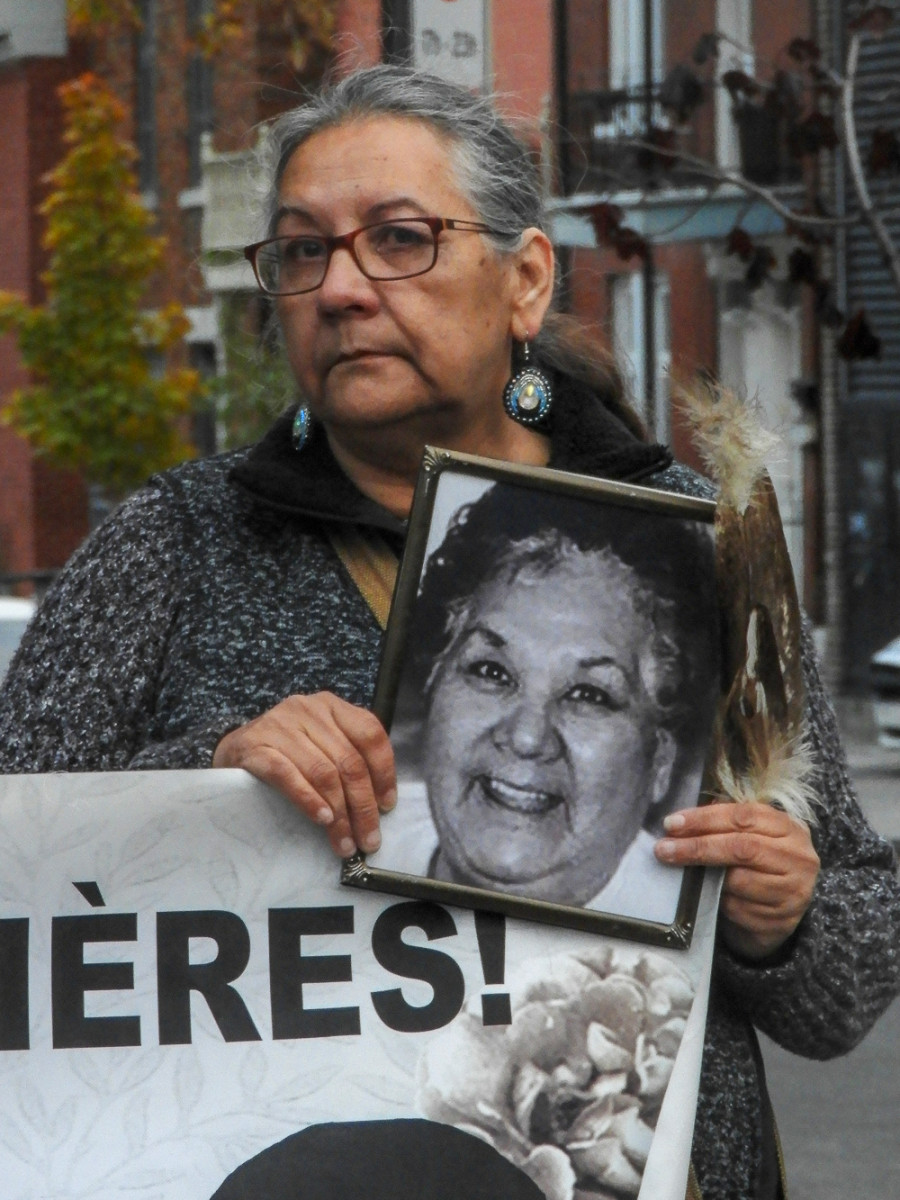
“One reason why I’m fighting so hard for justice is because the way her case was investigated,” said Tolley. “Three police forces, they didn’t explain nothing to us.”
Tolley said she didn’t know anything about her mother’s case until a year later. She found out after a newspaper reporter called her. “None of the police forces contacted us, told us nothing,” Tolley said.
After Tolley received the coroner’s report almost a year later, she noticed several mistakes, including the report stating the family identified the body. According to Tolley, she was never able to see her mother.
“My mother’s investigation, there’s only police, no witnesses, even though there was witnesses on the scene. They [didn’t take] witness statements, just police statements,” Tolley said. “They’re saying my mother died because she was drunk and not because she got hit by a car.”
“I want the dignity and respect back, that my mother deserves,” continued Tolley. “My mother is not a drunken Indian woman like the police report said, like three police forces claim she was. My mother was a kind, gentle, loving, grandmother.”
There’s no accountability, Tolley said. To hold police accountable, she said there needs to be a thorough investigation into police in every province.
“The police have to be investigated […] not only for justice for victims of police killings, but for missing and murdered indigenous women too,” Tolley said “Not to be investigating [the police] is a big sham.”
For Tolley, when she met other families, hearing their stories, she expressed her gratitude for their support.
“Not to be investigating [the police] is a big sham.” — Bridget Tolley
Photos were placed along the Fraternité des policiers et policières de Montréal, as well as candles lit for victims. One sign read “Canada’s shame.” While other speeches were being delivered, a teal banner with yellow and and white writing was held next to the speakers. “Justice for Nicholas Gibbs. Another Racist Murder by SPVM,” read the banner.
On Aug. 21, Gibbs was shot and killed by Montreal police in Notre-Dame-de-Grâce after allegedly threatening officers with a knife. His nephew, Jeremy Gibbs, remembers waking up in the morning when his friend told him about a shooting. He didn’t know who was shot, but he “had a feeling” something was wrong.
Jeremy found out it was his uncle who was shot once he went home. He was hoping it was a lie, until he saw his aunt on the news.
“My uncle, he wasn’t armed, he didn’t have a knife, he wasn’t running at them, he was calm and they shot him five times unarmed,” he said. “Everybody should have at least the shot to change, and he didn’t get that chance. They took that from him.”
Gibbs continued to voice his own personal experiences with Montreal police to the crowd. He spoke about being profiled, and seeing his uncle’s face slammed on the floor when he was 15 years old while coming home from school.
While Gibbs wants more police to be held accountable, he said that the problem needs to be recognized first. “Who’s policing the police?” he asked. “That’s what it comes down to.”
While counting the police that were grouped together behind him, Gibbs pointed “that’s how we should stand.”
“If we don’t stand up as a people and do something now, this will not just become something that’s rare, it will become something that’s consistent,” he said.

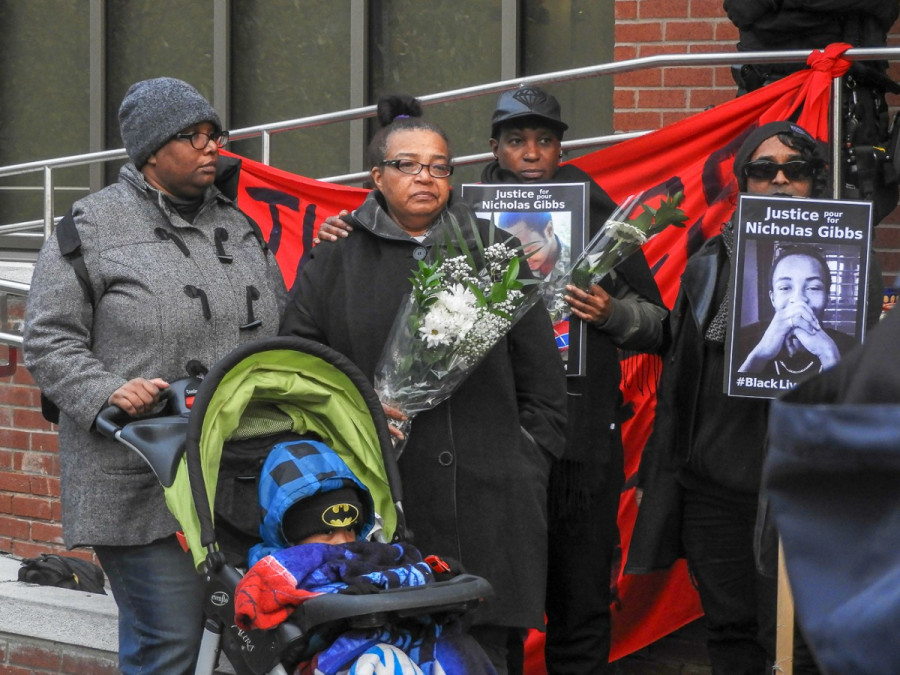
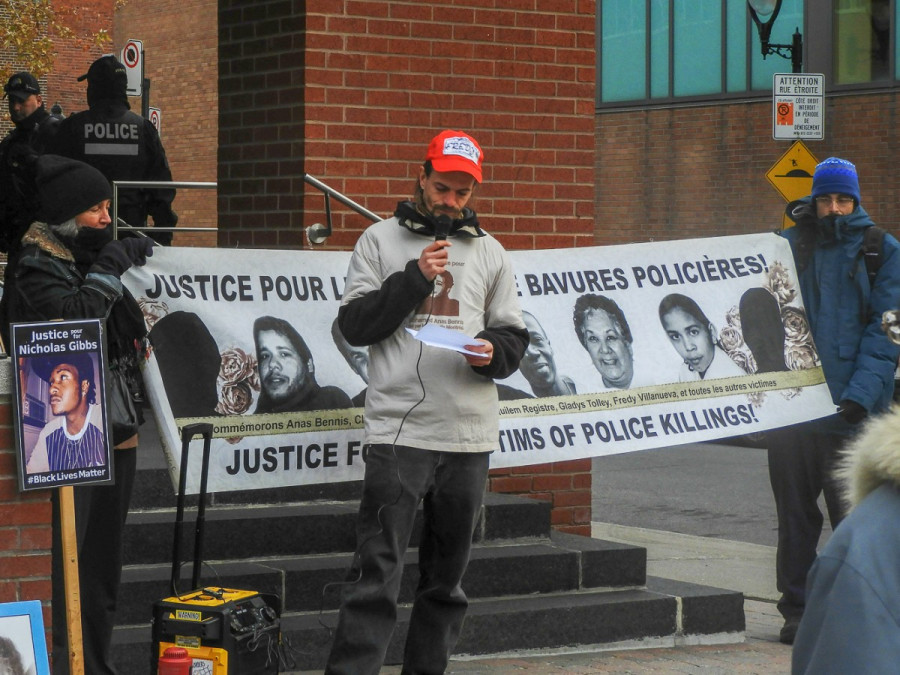

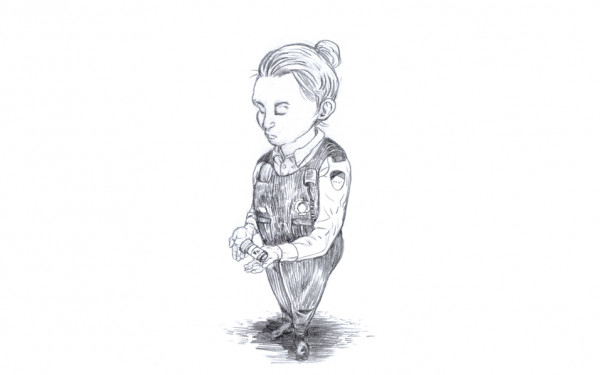
1_600_375_90_s_c1.jpg)
